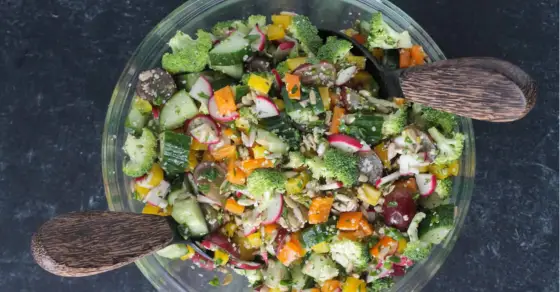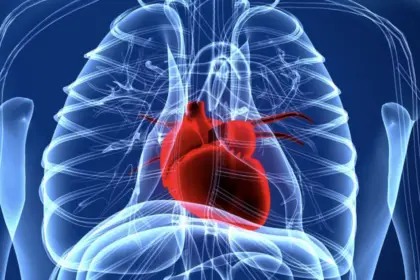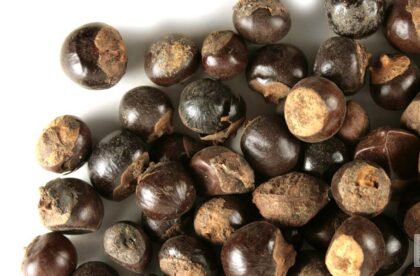In Traditional Chinese Medicine, food is much more than a source of calories or nutrients; it is energy that affects the balance of the body’s internal systems. TCM categorizes foods based on their energetic qualities: warm, hot, neutral, cool, and cold. Raw vegetables generally fall into the “cold” category, meaning they have a cooling effect on the body.
1. Weakening the Digestive Fire
One of the core beliefs in TCM is the importance of maintaining a strong and healthy digestive system, often referred to as the function of the Spleen and Stomach. These organs are responsible for transforming food into energy (Qi) and transporting nutrients throughout the body. Eating cold or raw foods is thought to dampen the digestive fire, making it harder for these organs to break down and assimilate nutrients effectively.
Over time, the consumption of too many raw foods can lead to symptoms such as:
- Bloating and gas
- Loose stools or diarrhea
- Fatigue and lethargy
- Cold hands and feet
- Water retention or puffiness
2. Promoting Dampness and Internal Cold
When digestion is compromised, TCM believes that the body can accumulate what is known as “dampness.” This refers to excess fluid or mucous in the body, which can manifest as:
- Brain fog
- Heaviness in the limbs
- Swollen joints
- Yeast overgrowth
- Weight gain or difficulty losing weight
Raw salads, being inherently cold and hydrating, are believed to contribute to this dampness, particularly when consumed in excess or during colder months.
3. Context Matters: Climate and Constitution
TCM always considers the individual’s constitution and environmental context. A young, energetic person living in a hot, humid climate may benefit from the cooling nature of raw foods. In contrast, someone who is older, prone to digestive issues, or living in a colder climate might find raw salads exacerbate symptoms like fatigue or poor digestion.
4. The Preference for Cooked Foods
Cooked vegetables are believed to be gentler on the digestive system and better suited for extracting nutrients. Cooking is thought to pre-digest the food, making it easier for the body to absorb and utilize essential vitamins and minerals without taxing the digestive organs.
Modern Nutritional Science: The Issue of Oxalates
While TCM approaches food from an energetic and functional standpoint, modern nutritional science offers biochemical explanations for why raw vegetables may sometimes be problematic. One of the key concerns is the presence of oxalates.
1. What Are Oxalates?
Oxalates are naturally occurring compounds found in many plant foods, including:
- Spinach
- Swiss chard
- Beet greens
- Rhubarb
- Almonds
- Cocoa
- Sweet potatoes
These compounds serve as a defense mechanism for plants but can cause health issues in humans when consumed in large quantities.
2. Health Risks of High-Oxalate Foods
Oxalates bind to minerals like calcium and magnesium in the gut, preventing their absorption. More significantly, high oxalate intake can contribute to the formation of kidney stones, particularly calcium oxalate stones, which are the most common type.
Other potential issues include:
- Joint pain or stiffness (oxalate crystals can accumulate in tissues)
- Gut irritation or inflammation
- Vulvodynia (chronic pain in the vulvar area, potentially linked to oxalates)
- Increased risk of nutritional deficiencies due to poor mineral absorption
People with compromised gut health or a predisposition to kidney stones are especially vulnerable to oxalate overload.
3. Cooking Reduces Oxalates
Boiling or steaming high-oxalate vegetables significantly reduces their oxalate content. For example, boiling spinach can decrease its oxalate levels by more than 80%. This makes cooked vegetables a safer and more nutrient-accessible option for people concerned about oxalate intake.
Bridging Ancient Wisdom with Modern Science
The concerns raised by TCM and modern science around raw vegetables are not mutually exclusive—in fact, they complement each other well. TCM speaks to the functional impact of raw foods on digestion and systemic energy, while nutritional science addresses the biochemical implications of compounds like oxalates.
When combined, the message is clear: raw salads and green smoothies are not universally healthy. They may benefit some people in moderation, especially in hot climates or when paired with warm foods. However, for those with digestive issues, mineral deficiencies, or a tendency toward damp conditions (as defined by TCM), relying heavily on raw vegetables can be counterproductive.
Practical Guidelines
If you’re reconsidering your raw salad habit, here are a few tips to transition more mindfully:
- Lightly cook your greens: Steaming, sautéing, or blanching vegetables like spinach, kale, and chard can make them easier to digest and reduce oxalate content.
- Eat seasonally and locally: Follow nature’s lead. Warm foods in winter, cooler foods in summer.
- Balance raw with cooked: If you love raw veggies, pair them with warming foods like ginger tea, miso soup, or cooked grains.
- Listen to your body: Bloating, fatigue, and cold limbs are signs that raw foods may not be serving you well.
- Consider your constitution: If you tend to feel cold, tired, or sluggish, cooked foods may help restore balance and energy.
Conclusion
While raw salads have earned a health halo in mainstream culture, both Traditional Chinese Medicine and modern nutritional science reveal a more nuanced reality. Cold, raw vegetables can weaken digestion, promote internal imbalances, and even contribute to mineral deficiencies and kidney stones through high oxalate content. The ideal diet is one that considers not only the nutrients in your food but also how your body responds to them. Cooking your vegetables, eating seasonally, and listening to your body’s signals can go a long way toward achieving true, lasting health.




